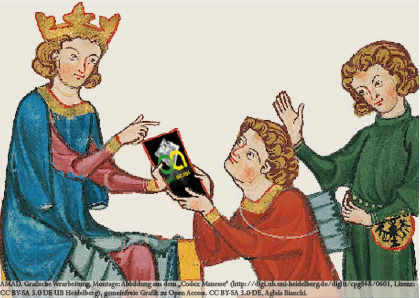AMAD
"Archivum Medii Aevi Digitale - Specialized open access repository for research in the middle ages"To submission

Full metadata record
| DC Field | Value | Language |
|---|---|---|
| Contributor | The Pennsylvania State University CiteSeerX Archives | - |
| Author | Nico Voigtländer | - |
| Author | Hans-joachim Voth | - |
| Date | 2011 | - |
| Other Identifier | http://citeseerx.ist.psu.edu/viewdoc/summary?doi=10.1.1.418.429 | - |
| Other Identifier | http://research.barcelonagse.eu/tmp/working_papers/551.pdf | - |
| URI | https://www.amad.org/jspui/handle/123456789/59268 | - |
| Description | Abstract: How persistent are cultural traits? This paper uses data on anti-Semitism in Germany and finds continuity at the local level over more than half a millennium. When the Black Death hit Europe in 1348-50, killing between one third and one half of the population, its cause was unknown. Many contemporaries blamed the Jews. Cities all over Germany witnessed mass killings of their Jewish population. At the same time, numerous Jewish communities were spared these horrors. We use plague pogroms as an indicator for medieval anti-Semitism. Pogroms during the Black Death are a strong and robust predictor of violence against Jews in the 1920s, and of votes for the Nazi Party. In addition, cities that saw medieval anti-Semitic violence also had higher deportation rates for Jews after 1933, were more likely to see synagogues damaged or destroyed in the Night of Broken Glass in 1938, and their inhabitants wrote more anti-Jewish letters to the editor of the Nazi newspaper Der Stürmer. | - |
| Format | application/pdf | - |
| Language | eng | - |
| Rights | Metadata may be used without restrictions as long as the oai identifier remains attached to it. | - |
| Dewey Decimal Classification | 940 | - |
| Title | Barcelona GSE Working Paper Series Working Paper nº 551Persecution Perpetuated: The Medieval Origins of Anti-Semitic Violence in Nazi Germany | - |
| Type | text | - |
| AMAD ID | 568196 | - |
| Year | 2011 | - |
| Open Access | 1 | - |
| Appears in Collections: | BASE (Bielefeld Academic Search Engine) General history of Europe | |
Files in This Item:
There are no files associated with this item.
Items in DSpace are protected by copyright, with all rights reserved, unless otherwise indicated.

